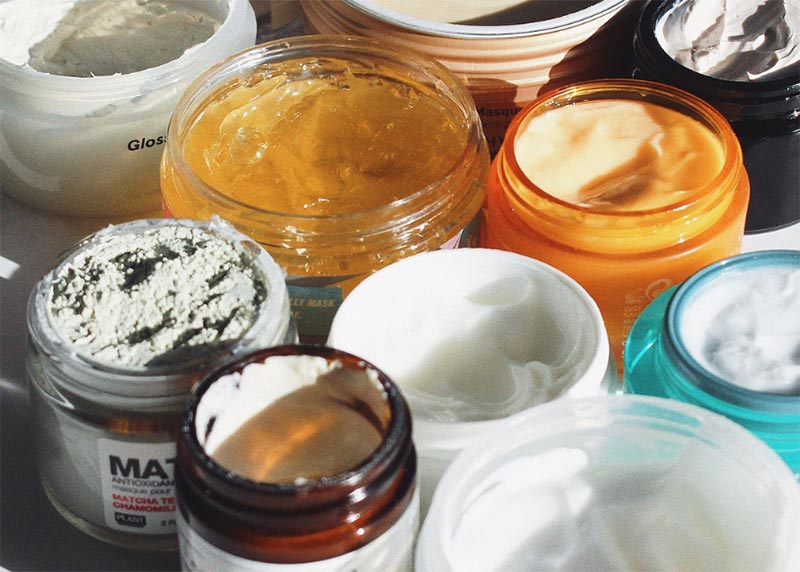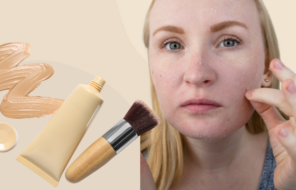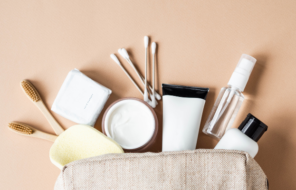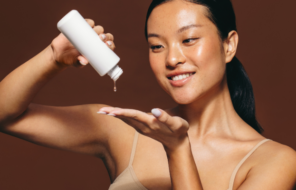CBD skincare is the newest and hottest trend in the beauty world, and we suspect it’s only going to get hotter! With marijuana becoming increasingly legalized or decriminalized throughout the world, it is no surprise that cosmetic brands are looking into the cannabis plant’s potential to beautify and boost both skin and hair.
The obvious question that pops into one’s mind is: is there more to CBD skincare than just typical buzz? At first, I was skeptical, but in researching for this article I discovered some surprising facts.
In this article, I’ll explain exactly what CBD is, and how it works in skin care. I will break down all of the CBD skin benefits that are frequently reported, and let you know how well backed up they are.
I’ll let you know which skin types can most benefit from CBD, and how CBD is different from hemp oil. I’ll cover other important details, like legality and side effects – basically, everything you need to know about smearing this particular cannabinoid on your skin.
In this article:
- What Is CBD?
- How Does CBD Work in Skin Care?
- What’s the Difference Between CBD and Hemp Oil?
- CBD Oil Skin Benefits
- Does CBD for Skin Have Any Side Effects?
- Which Skin Types Is CBD Skincare Best for?
- How to Use CBD Skincare?
- Is CBD Skincare Legal?
- Bottom Line on CBD Skincare
What Is CBD?
CBD is short for cannabidiol, one of the main chemical compounds found in the cannabis plant. CBD can be derived both from industrial hemp (the variety of the cannabis plant that is considered legal in most places because it contains less than 0.3% THC and is therefore non-psychoactive so it cannot be used as a drug), and from the psychoactive variety of cannabis known as marijuana.
As a medicine, CBD was recently approved by the FDA as an anti-seizure medication for severe forms of childhood epilepsy. There is also some evidence (largely from animal studies or human case studies that did not include a control group) that CBD can help treat anxiety, psychosis, depression, and insomnia, and that it has anti-inflammatory properties. This evidence hasn’t been enough to convince the FDA yet.
Unlike THC (short for Tetrahydrocannabinol), CBD is not considered psychoactive, meaning that it won’t get you high. Because of that, isolated CBD is legal in many places where cannabis is not.
With that being said, CBD isn’t legal everywhere in the world, so it is important you check your country’s or state’s regulations before seeking out this fascinating compound. If you live in a state or country where marijuana has been legalized then you can be certain that CBD is also legal.
How Does CBD Work in Skin Care?
These days CBD has been showing up in all kinds of skincare products, although it is most popular as an addition to body creams. The reason why CBD is such an excellent addition to skin care is that it has a high affinity for the skin and for the human body, thanks to the endocannabinoid system.
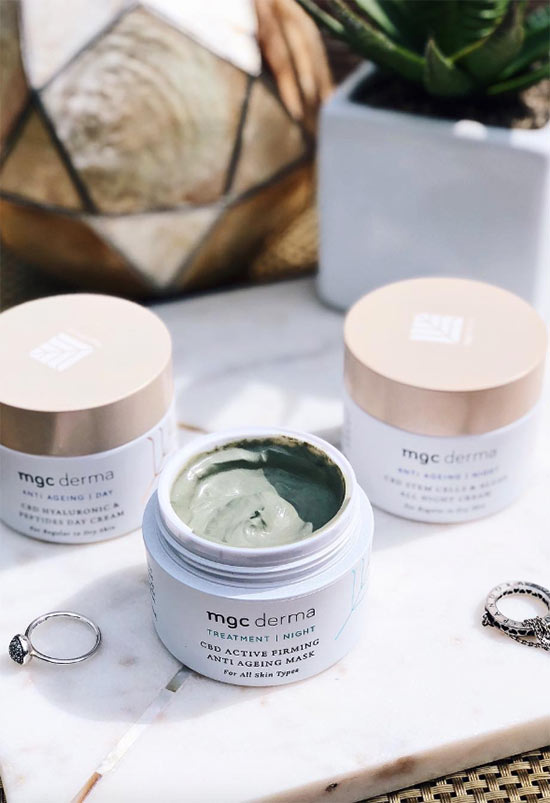
The endocannabinoid system (ECS) is a collection of cell receptors distributed throughout the human body, including the nervous system. These are the receptors to which the THC from marijuana binds when it is consumed, leading to a state of intoxication usually referred to as “being high.”
More significantly, the ECS takes part in regulating many different processes, including mood, pain, and much more, partially by producing its own CBD along with other endocannabinoids. That’s right, this means that the human body naturally produces the same kinds of compounds that exist in cannabis!
CBD is lipophilic, so it is able to penetrate the top layer of skin through layers of oil, and it is also easy to formulate into skin care. It readily binds and interacts with receptors in our body, and triggers all kinds of pain relieving and anti-inflammatory effects.
When applied topically to the skin, the most immediately recognizable effect of CBD is reduction in pain, inflammation, and redness. Another research shows that CBD can help reduce oil production in skin, in this way controlling acne.
What’s the Difference Between CBD and Hemp Oil?
There is a lot of confusion out there about the difference between CBD and hemp oil for skin, with some beauty publications (looking at you, Elle) not helping when they attribute hemp oil skin benefits to CBD.
You’ve likely seen hemp oil in many different skincare products. Hemp oil is a fabulous skincare ingredient that works well for almost all skin types. The oil is primarily made up of non-comedogenic fatty acids like linoleic acid and alpha-linolenic acid, and its unrefined version is rich in antioxidant phytosterols and vitamin E.
Hemp oil is usually not tested for CBD levels, but chances are it does contain trace amounts. If hemp oil is only a small part of a cream or lotion that you’re using, then chances are that the CBD amount in the product is completely negligible.
However, there are many products on the market where isolated CBD is combined with hemp oil, to deliver to the skin the very best of both worlds.
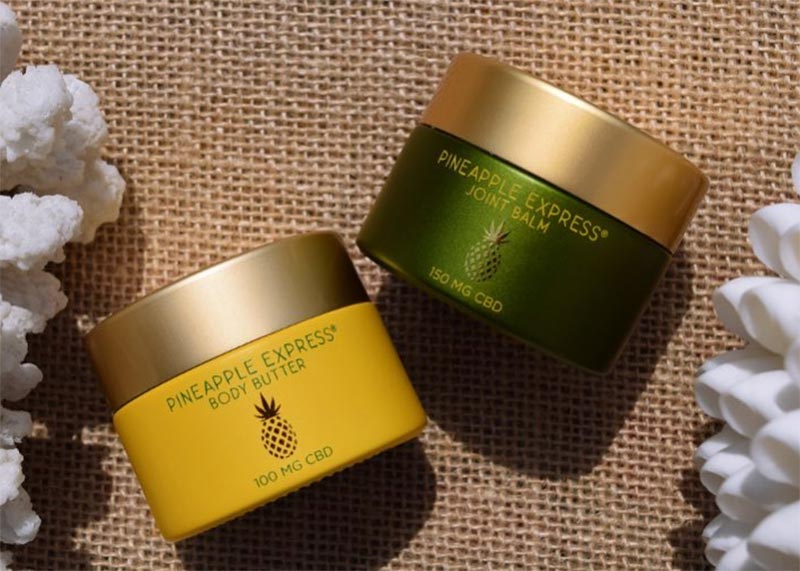
CBD Oil Skin Benefits
If you are still not sure to introduce CBD to your skincare routine or not, here you have all the benefits it will bring along.
Anti-Inflammatory
People using skincare containing CBD often find that it is able to reduce signs of inflammation in their skin like swelling and redness. This could be especially excellent for those with sensitive skin.
Preliminary research does back up the anecdotes that topical CBD is anti-inflammatory, with studies on mice showing that CBD gel was able to decrease joint inflammation due to arthritis, and case studies on humans suggesting that the effect also translates to human skin conditions that cause redness and irritation.
As more research takes place, the more topical CBD products we will see on the market.
Antioxidant
The US department of health filed a patent on CBD oil as an antioxidant and neuroprotectant all the way back in 1998. We know that CBD can have an antioxidant effect, so in theory, it is possible that when applied topically, this phytocannabinoid could possibly help prevent the free radical (i.e. oxidative) damage caused by exposure to the sun or pollution, to help slow down the extrinsic aging process to prevent wrinkles, fine lines, and hyperpigmentation from developing.
Of course, we can’t say this for sure, since absolutely no research has been done yet on CBD as an anti-aging ingredient, but in the future the effects could be very exciting!
Mattifying and Anti-Acne
One of the most exciting potential uses for CBD is as an acne treatment! Like salicylic acid, CBD is lipophilic so it is able to easily penetrate the layer of sebum that is on the skin or in the pores, where it can better affect the skin.
Its potential as an anti-inflammatory treatment is one clear way in which it could radically minimize the redness and swelling associated with acne pimples, but even more exciting is preliminary in-vitro research showing that CBD applied topically could help reduce oil production in the skin.
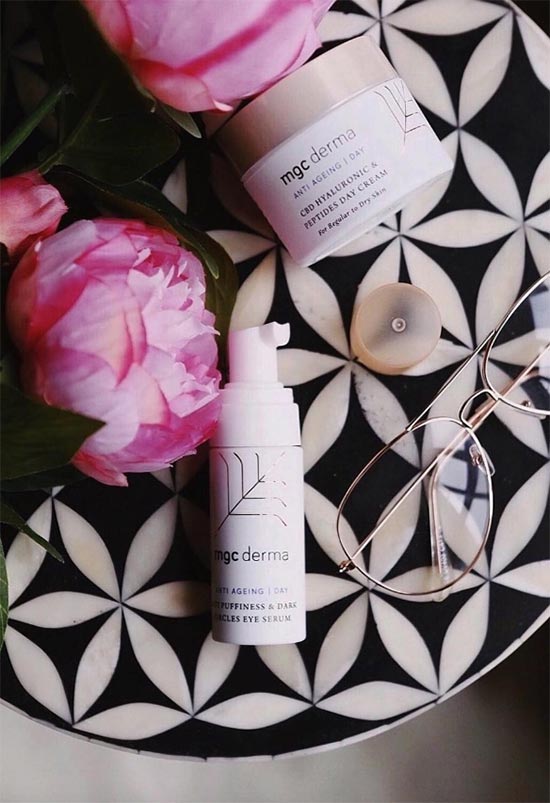
Pain Relieving
Many of the topical CBD skin products already out for sale are marketed as pain relievers, meant to be applied to the skin to reduce muscle pain or cramps, no matter their cause. Dozens of people attest to the ability of those CBD creams to reduce their pain, while lab animal studies also show that CBD has significant pain-relieving effects – this is likely because of CBD’s anti-inflammatory effects.
For the most part, topical CBD doesn’t seem to compare to oral pain-relieving medication, but the beautiful thing is that the two can be used together for an increased effect. So far, those suffering from chronic pain are the biggest and most vocal fans of CBD for pain relief, so we look forward to more conclusive studies proving its effects as a pain reliever.
Does CBD for Skin Have Any Side Effects?
At the moment CBD is such a new ingredient in skin care that there have yet to be any side effects reported. While there are certainly some potential side effects to consuming or inhaling CBD, when applied topically to the skin you can expect absolutely no effect beyond the intended anti-inflammatory one.
With that being said, I always caution that when introducing a new skincare product into one’s routine, it is important to conduct a patch test. Test the product for a few days in a row on a patch of skin somewhere where a reaction will not be disastrous – the forearm, inner upper arm, neck, or behind the ear. If you don’t see any adverse reaction for a few days in a row, then you’re good to go.
If you’re concerned about breaking out (after all, we don’t know the comedogenicity of CBD yet), do the same type of patch test but on an area where you normally break out. If you don’t experience acne that is out of the ordinary, then CBD should be fine for you.
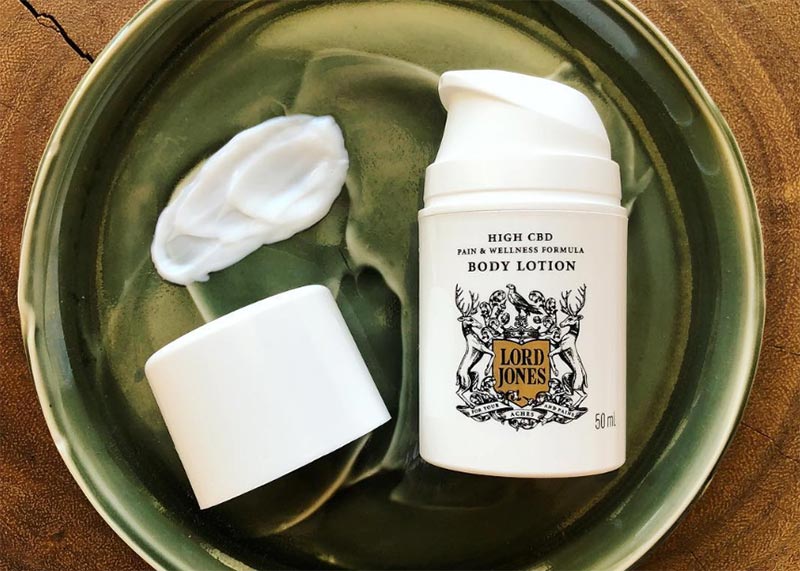
Which Skin Types Is CBD Skincare Best for?
Since the anti-inflammatory benefits of CBD for skin have been the most well researched and documented, it follows that CBD is most suited to those with sensitive skin, since it can mitigate the redness and irritation that is part and parcel of being sensitive. If your skin turns red or flushed very easily, and if you often experience other signs of irritation like rawness, itchiness, swelling or pain, then definitely consider giving CBD skincare a try.
Those with oily skin should also try CBD skincare products, because if CBD can indeed reduce excessive oil production in the skin then it would be a total godsend. While we can’t say with certainty yet that this could be one of CBD’s skin benefits when applied topically, it cannot hurt to try – in fact, it would be the only way to find out!
From this it follows that perhaps those with dry skin should avoid CBD. However, many CBD products are formulated with plenty of restorative oils, so if you have dry skin and you choose an appropriate product, chances are you won’t experience a mattifying effect at all.
In general, it seems that CBD works to regulate oil production in a balancing way, so if your skin isn’t over-producing oil, then CBD won’t have a mattifying impact.
How to Use CBD Skincare?
CBD can show up in all kinds of cosmetics, as you can see from our selection of CBD skincare products. A face cream with CBD should be used like any other face cream, while a toner with CBD should be used like any other toner.
While there are CBD-infused cleansers, I don’t think it makes sense to pay top dollars for them, since cleanser doesn’t stay on the skin for long enough to allow the CBD to penetrate and have an impact.
When it comes to using CBD topically for pain, choose whether you prefer a light lotion, silky oil, or heavy balm. Apply the treatment you chose to the area where you experience pain – potentially even a few times a day.
For headaches, it is often recommended to apply the CBD creams to temples or behind the neck, although it is not clear whether CBD applied topically can actually help with such pain.
Is CBD Skincare Legal?
It seems as though in most places the answer is yes, or at least it’s not a no. Let me explain: while CBD skincare is not necessarily officially legal everywhere, it is also not criminal to possess in most places, since it is non-psychoactive.
These days, with so many countries and states legalizing even non-medicinal uses of marijuana, CBD is also becoming increasingly legal. If marijuana is legal where you live, then you can be assured that CBD is legal as well. If marijuana is not legal where you are located, then you will have to dig a little deeper to find out if CBD is.
In the UK and Canada, CBD is completely legal, while in the United States, for example, the legality of CBD varies from state to state, with its legality being murky and unclear in some states.
Many retailers mention that since their CBD skincare products use CBD derived from legal hemp oil, the CBD itself is completely legal as well, and therefore their products are legal in all countries where hemp oil is legal. Whether this claim would hold up in front of a judge is unclear, and while people have not been charged for possessing skincare with CBD, the same is not true for other CBD products.
If you’re in doubt about the regulations where you live, consult a legal professional of some sort.
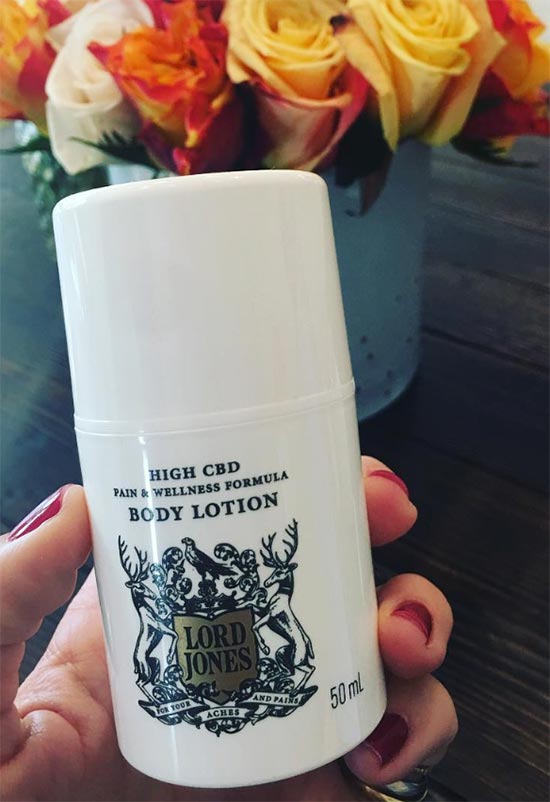
Bottom Line on CBD Skincare
At the moment there simply isn’t enough research for us to be able to say conclusively that CBD is a miraculous skincare ingredient. The products out there that do contain CBD are getting rave reviews, but whether that’s strictly because of the CBD or because of their overall formulation is not totally clear.
Topical use of CBD is certainly not harmful for the most part, so you have nothing to lose by giving it a try! We think that even in just a few months some of the proposed CBD skin benefits will be supported by more robust evidence, and we’ll also have a lot more anecdotal evidence of its efficacy as a cosmetic as more people start using it!
Photos via @overglowedit, Instagram

